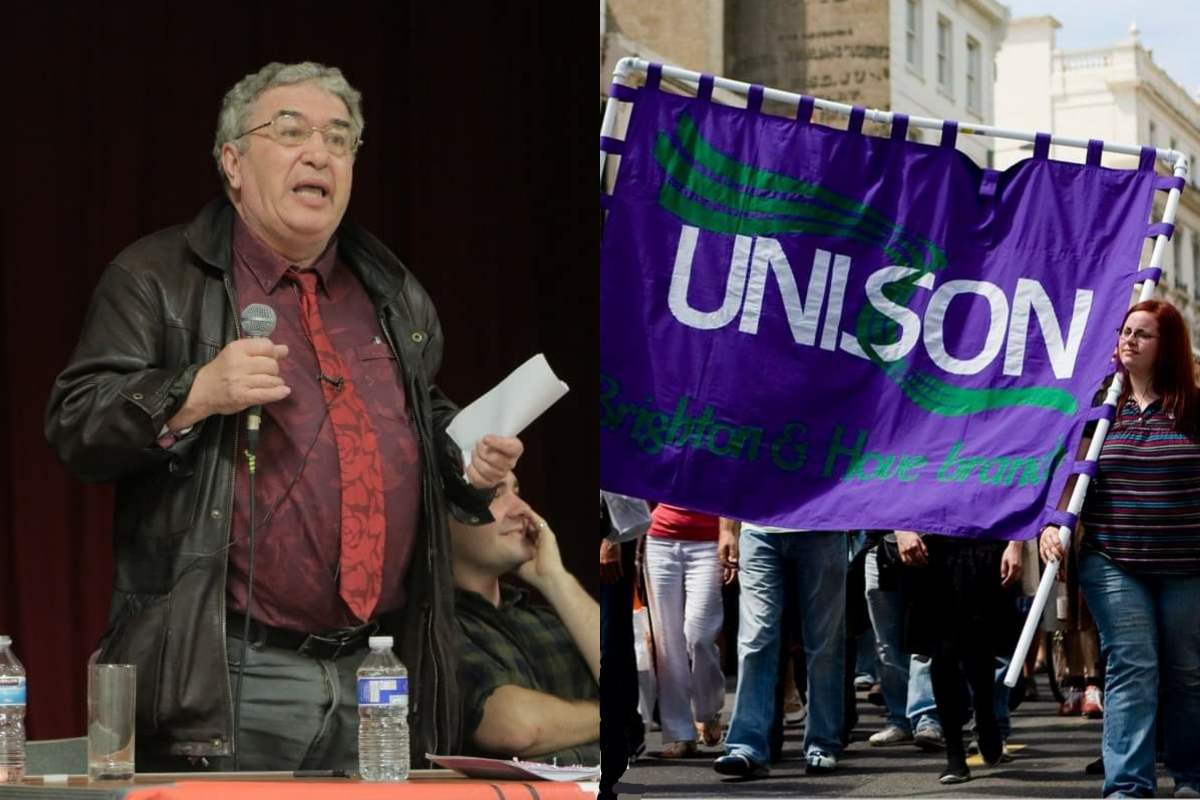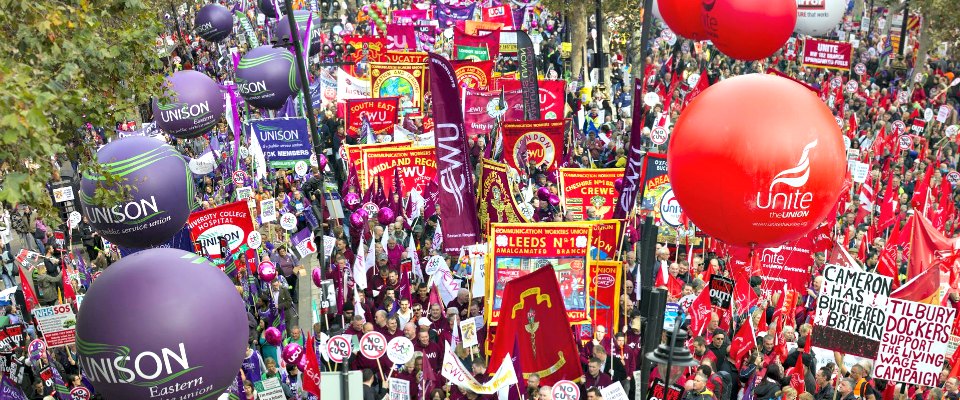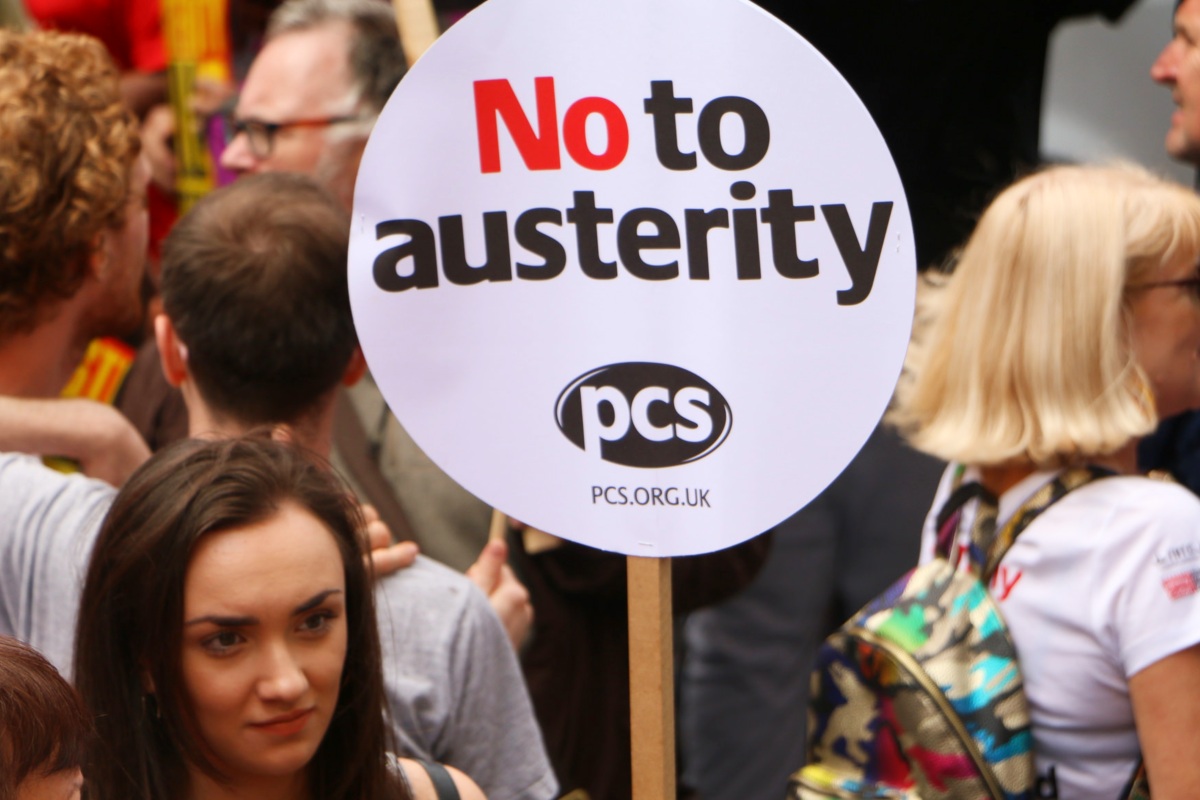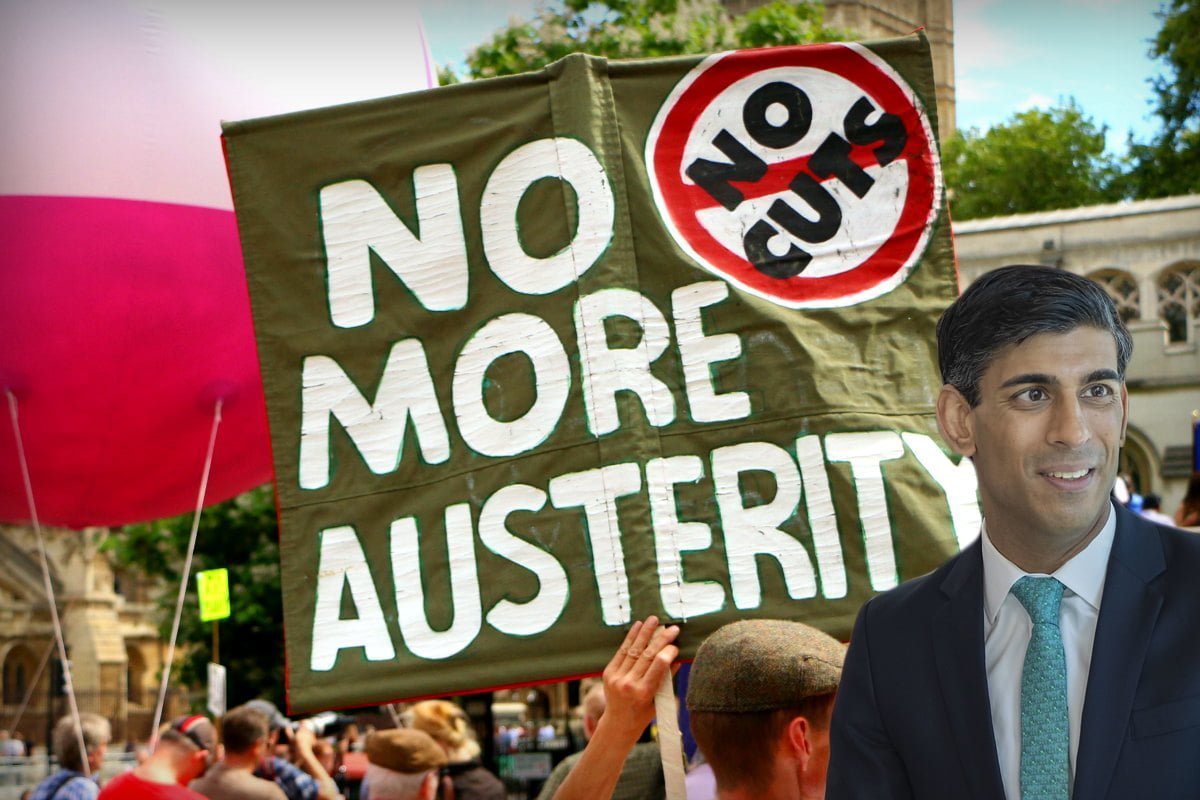After bailing out big business with billions, the Tories are pledging to ‘balance the books’ by implementing a public sector pay freeze. The trade union leaders must respond with bold united action. For a one-day public sector strike!
Last week, Tory chancellor Rishi Sunak announced plans for a three-year pay freeze. This news will be met with enormous anger by millions of public sector workers.
Anger, yes – but not surprise. Throughout the pandemic, and despite Tory claims to the contrary, many workers had already concluded that a new wave of austerity and attacks on pay, terms, and conditions were coming down the track.
This is important. In 2008, the financial crash came as a huge shock. By contrast, the coronavirus crisis has played out on the news day-in, day-out for months on end.
With the government throwing billions into the economy to prop up the system, it has been clear for some time that the bill for this crisis would eventually be presented. And public sector workers have learned through bitter experience – from the last decade of Tory austerity – that they will always be the first in line when the government wants to cut costs.
Looking for a lead
The pandemic has led to a massive amount of frustration and uncertainty, Public sector workers have been in the frontline, facing enormous pressures.
To cite just one example: Claims for Universal Credit increased by 1000% at the beginning of lockdown. The DWP tried to push job centre staff back to work, calling for increased opening hours, including Saturdays.
For low-paid and part-time workers, the vast majority of whom are women, any attack on wages represents a major threat. No surprise then that workers are looking for a lead from the unions.
Fighting this pay freeze has to be an absolute priority for the trade unions. And union leaders have already responded.
Mark Serwotka, general secretary of the PCS civil servants union, has highlighted how the Tories have dished out £17 billion in lucrative outsourcing contracts to private companies during the pandemic.
Unison general secretary Dave Prentis, in contrast, has limited himself to asking the government to “do the right thing”.
The government must do what’s right next week and announce the wage rise all staff have more than earned. Anything less risks destroying morale when the entire country is counting on them https://t.co/FPo8Rgeb5q
— Dave Prentis (@DavePrentis) November 20, 2020
The general response, however, is that a wage freeze is a kick in the teeth for workers – the very people who have made huge sacrifices over the last few months, in many cases losing friends and colleagues that they worked with.
Essential workers
 The left candidate in the Unison general secretary elections (currently underway) is Paul Holmes. He has built up an impressive campaign, precisely by reaching out to low-paid workers, cleaners, home carers and others whose voices are seldom heard.
The left candidate in the Unison general secretary elections (currently underway) is Paul Holmes. He has built up an impressive campaign, precisely by reaching out to low-paid workers, cleaners, home carers and others whose voices are seldom heard.
These same workers have been in the frontline supporting elderly and vulnerable people, and ensuring that schools, care homes and hospitals are clean and sanitised, in order to minimise contagion.
Public sector workers pay has consistently fallen behind. Commenting on the upcoming retirement of Dave Prentis, Jon Rogers, a former member of the Unison National Executive Council, wrote that:
“On 1 January 2001 (when Unison’s third general secretary commenced the first of his four terms of office) the hourly rate for the lowest paid local government worker was £4.61(an annual salary of £8,886) and spine point 28 was £9.52 (£18,372). This compared with a National Minimum Wage rate (for those aged 22 and above) of £3.70. The lowest point on the pay spine was therefore 25% above the minimum wage and spine point 28 (the highest point at which there is an entitlement to overtime payments under the terms of the national agreement) was more than two and a half times the minimum wage.
The current rate of the minimum wage is £8.72, the lowest point on the NJC pay spine is £9.00 an hour (an annual salary of £17,364) and the new spine point 22 – the equivalent of the old spine point 28 – is £13.64 (£26,317). The lowest point on the pay spine is now barely 3% above the minimum wage (as opposed to 25% twenty years ago) and a local government worker on the equivalent of the old spinal column point (SCP) 28 is now on just over one and a half times the minimum wage, as opposed to two and a half times when Mr Prentis first took office as General Secretary”.
The situation in the NHS and the civil service will be similar. Plans to treat doctors and nurses differently will be seen as simply adding fuel to the fire: on the one hand, by treating those in hospitals with low-paid, dirty, and frankly dangerous jobs differently; and on the other hand, trying to split away those groups of workers seen as having more public support.

United action
A public sector pay freeze of course raises the prospect of coordinated national action, as the vast majority of public sector workers will be affected by this latest Tory austerity announcement.
But what sort of action is needed? Nine years ago, in 2011, a Tory assault on public sector pensions was met with the biggest day of strike action since the 1926 general strike. Millions of workers participated in the 30 November strike.
However, the momentum from this tremendous united action was soon lost, as the focus shifted to separate negotiations.
To fight any public sector pay freeze, the unions need to involve the maximum numbers of members. This means building a campaign and taking militant action that demonstrates the power that workers hold.
The trade union leaders must also be prepared to take all-out action. One-day protests won’t succeed, but bold, determined, and united action can. The Tories are in a very weak position, and have been forced to U-turn on a whole series of issues in recent months. The labour movement must mobilise its full weight to force another reversal.
Make the bosses pay!
 We must highlight the hypocrisy. Big business and the bosses have been bailed out to the tune of billions. By contrast, there would be enormous public support for low-paid essential workers fighting back against a pay freeze.
We must highlight the hypocrisy. Big business and the bosses have been bailed out to the tune of billions. By contrast, there would be enormous public support for low-paid essential workers fighting back against a pay freeze.
Public sector workers – especially those in hospitals and schools, and those delivering vital services in local communities – are highly visible and respected. These key workers have demonstrated their importance and value throughout the pandemic.
The most important question, however, is that of leadership. In Unison, in particular, the old bureaucratic methods have failed to deliver for low-paid workers for decades.
Only a united struggle across the civil service, local government, and the NHS – with coordinated action and synchronised industrial action – can smash Tory austerity. A one-day public sector general strike would galvanise workers, drawing millions into activity, and laying the basis for waves of all-out action in different sectors.
This would provide a powerful boost to a mass national campaign against all austerity, and deliver a potentially knock-out blow to this rotten Tory government.
- Smash the pay freeze!
- For a 24-hour public sector general strike!
- Make the bosses pay for this crisis!






